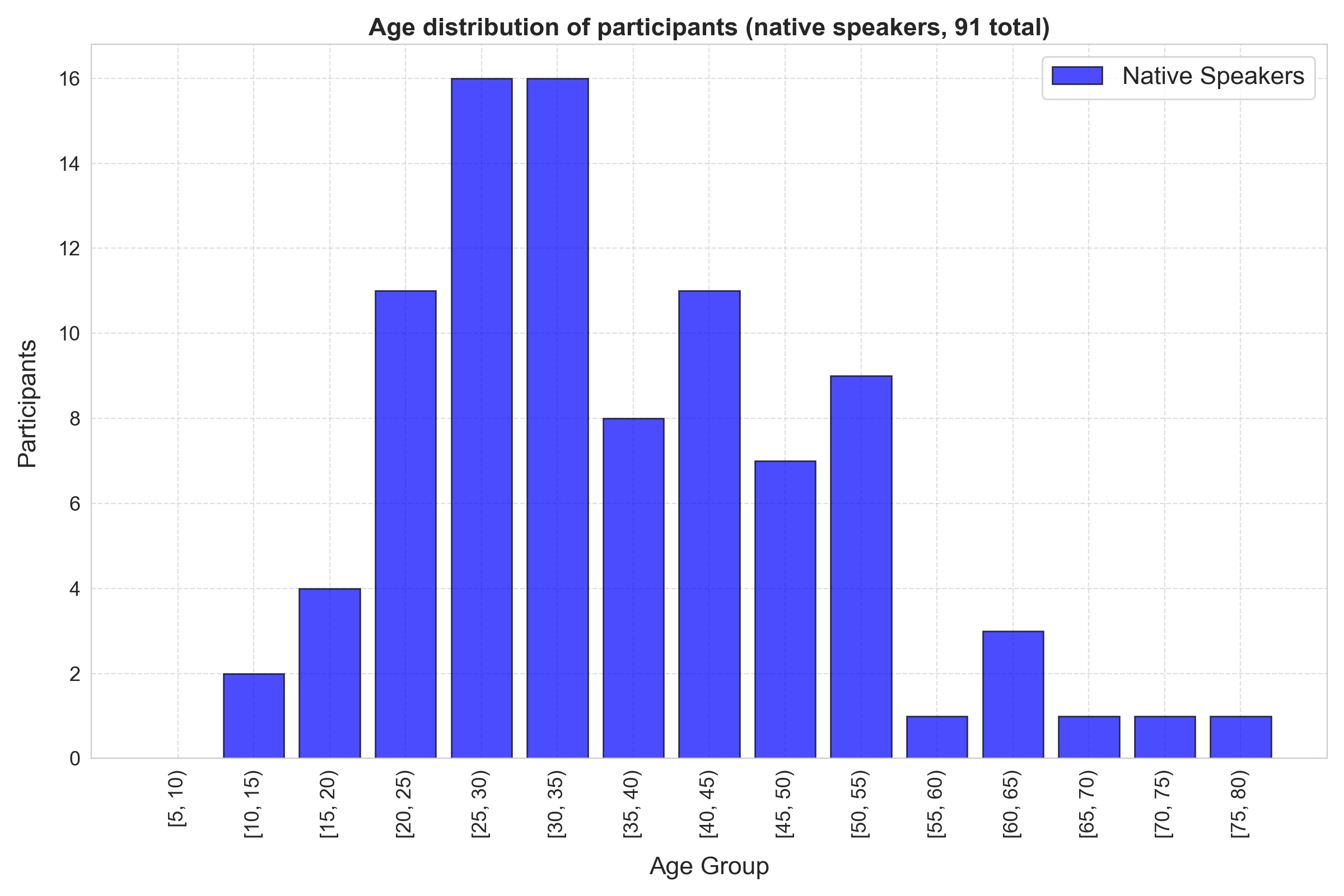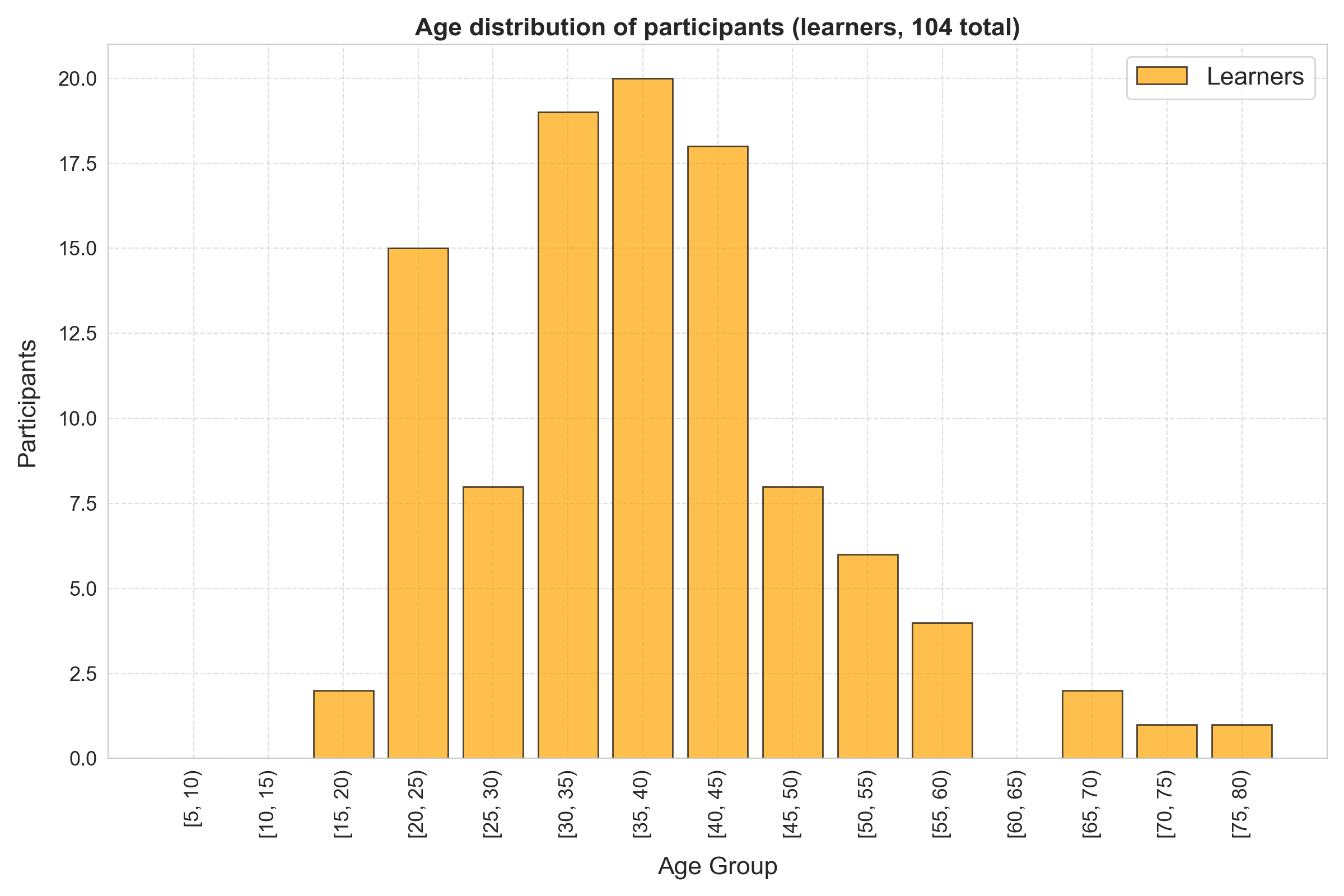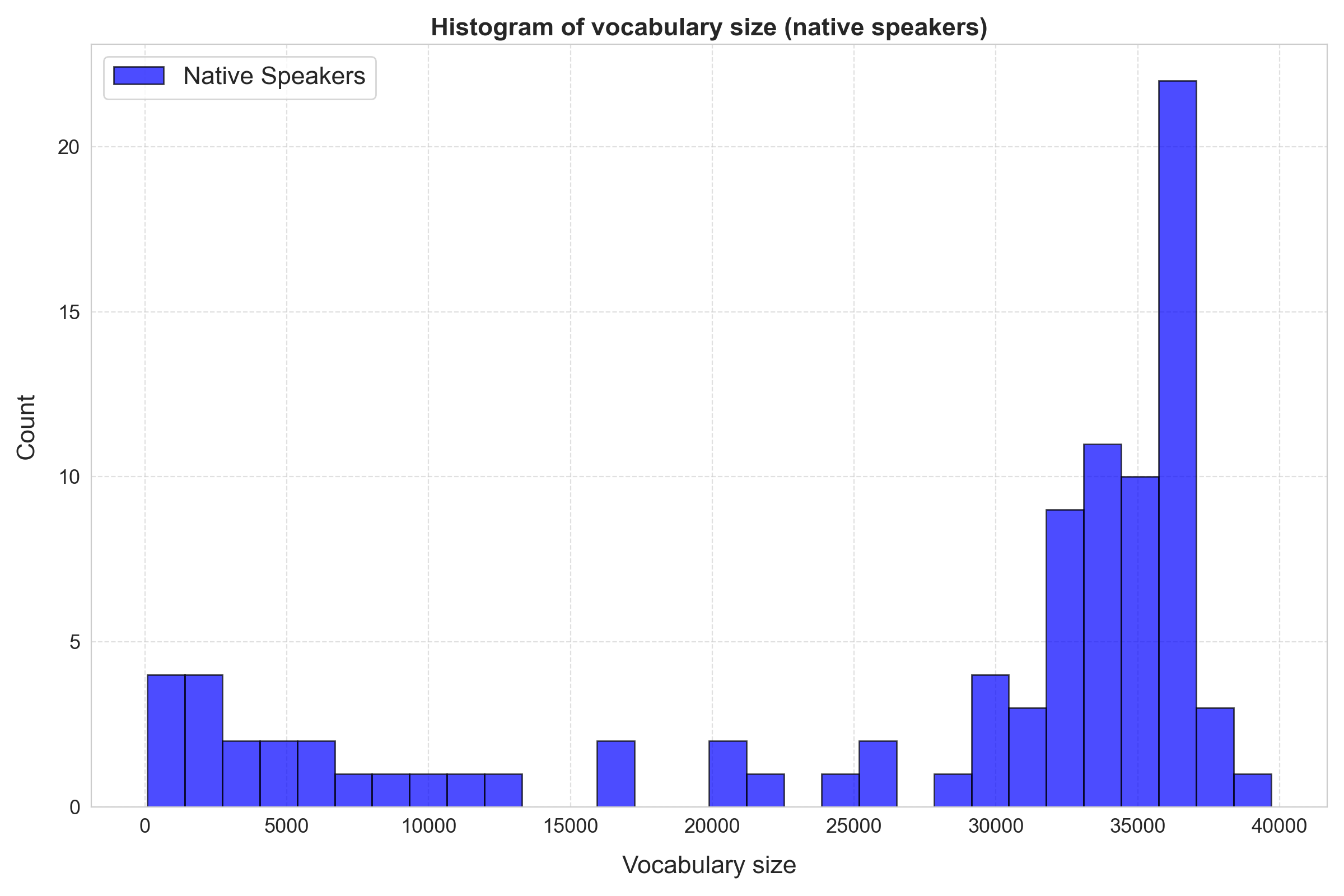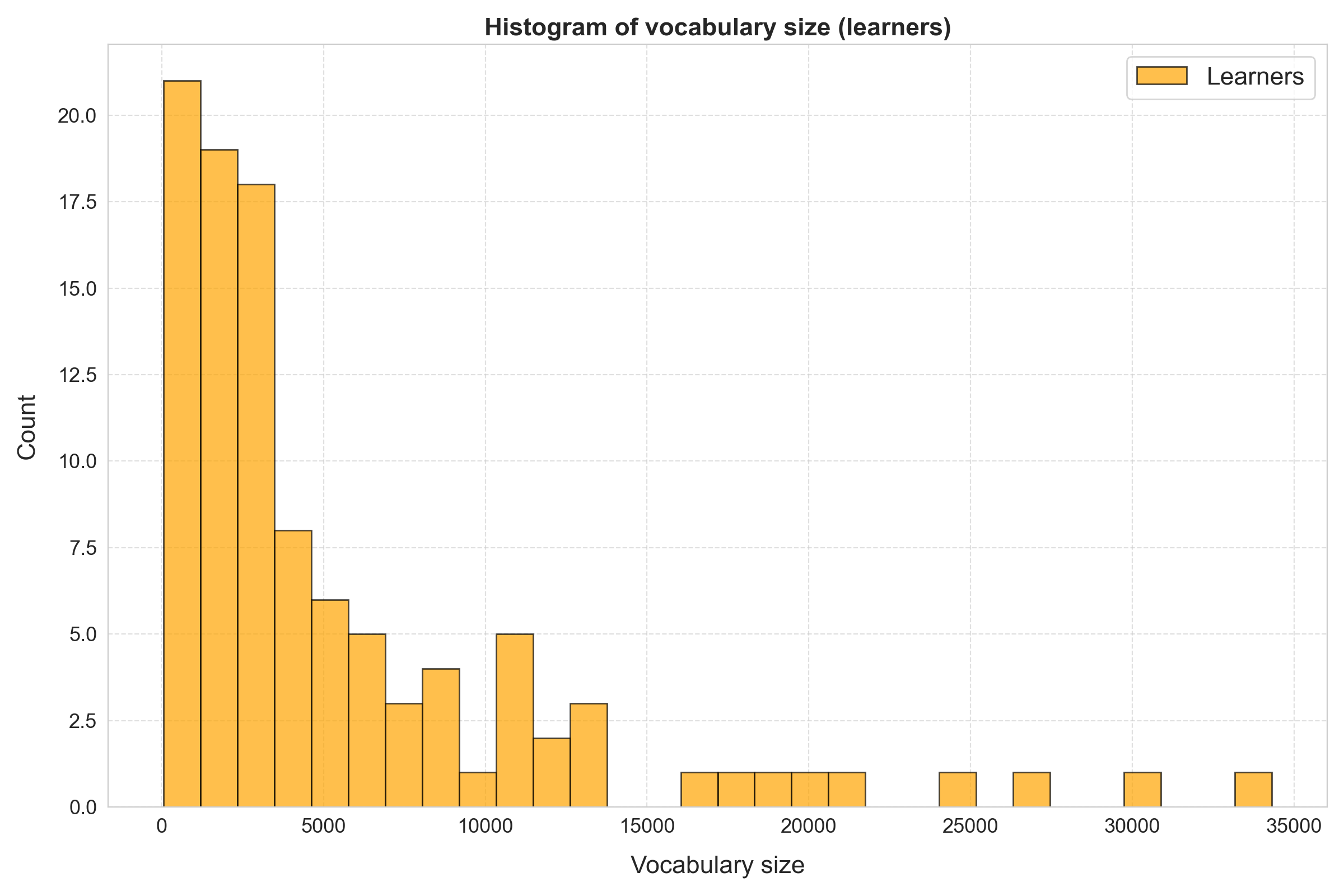Vocabulary size of modern Greek speakers
We present preliminary results from a modern Greek vocabulary test, designed for both native speakers and learners. Detailed information about the test methodology is available on the test description page.
Participants
To date, 195 respondents have completed the test, including 91 native speakers and 104 Greek learners. Let's look at their age distributions:


Vocabulary size
Let's now look at vocabulary sizes of native speakers and learners.

For native speakers:
- The median vocabulary size is 33,700 words. This means that half of the native speakers tested know fewer words, and the other half know more.
- The 25th percentile is 21,300 words. In other words, 25% of native speakers scored below this level, while the remaining 75% scored higher.
- The 75th percentile is 36,300 words. This indicates that only 25% of native speakers have a vocabulary larger than that.
- At the 90th percentile, only 10% of native speakers know more than 36,600 words. This represents the upper range of vocabulary sizes in the dataset.

For learners:
- The median vocabulary size is 2,900 words. This means that half of the learners tested know fewer words, while the other half know more.
- The 25th percentile is 1,300 words. In other words, 25% of learners scored below this level, while 75% of them scored higher.
- The 75th percentile is 7,300 words. This indicates that only 25% of learners have a vocabulary larger than that.
- At the 90th percentile, only 10% of learners know more than 13,300 words. This represents the upper range of vocabulary sizes among the learners who took the test.
Frequently asked questions
Can I compare these results with results of other vocabulary tests in Greek?
Unfortunately, you can't. It is impossible to compare results of any two vocabulary tests. First, all tests use different methodologies, so they measure slightly different aspects of one's vocabulary. Second, all tests define what is counted as a word differently. For example, some count derivative words, and some do not. Third, every test uses different definition of what it means to "know" a word. Finally, not all tests in the internet are created equal. Only a small fraction of online vocabulary tests are based on rigorous scientific methods.
How does avarege vocabulary of native speakers and learners in modern Greek compares to other languages?
Comparing vocabulary sizes across languages is nearly impossible.
- Many languages have highly inflected forms, where a single root word can produce numerous variations. In Latin, for example, the verb "amare" (to love) generates forms like "amo" (I love), "amavi" (I loved), and "amatus" (loved). Including all these inflected forms can significantly inflate a language's total word count.
- In some languages, such as German, compound words are common. For instance, "Donaudampfschifffahrtsgesellschaftskapitän" is considered a single word, meaning "Danube steamship company captain." Deciding whether to count compound words as individual entries or as combinations of existing words can be challenging.
- Certain languages have extensive derivational morphology, which adds significantly to their word count. For example, in English, the word "happy" leads to related forms like "happiness," "unhappiness," "happily," and "unhappily." Should these words be counted as one or as separate entries?
- Many languages also borrow extensively from others, expanding their vocabulary. English, for instance, has adopted words like "déjà vu" from French, "tsunami" from Japanese, and "emoji," also from Japanese. Determining when a borrowed word becomes a full-fledged part of a language adds further complexity to the task.
How many words are in modern Greek?
It is very difficult to determine the exact number of words in any language, because the estimates depend strongly on what is considered an independent word and what is considered a derivative. As a reference, we used Dictionary of Standard Modern Greek (Triantafyllidis Dictionary), which contains 45,000 words.

Last updated: Augues 7, 2025